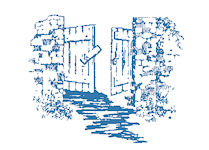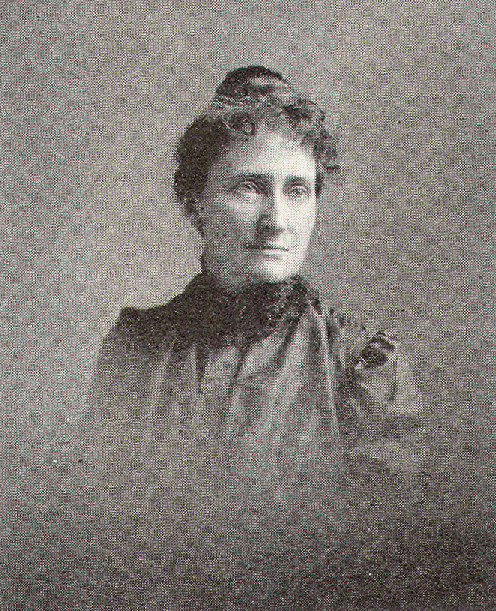


|

|

| Level* | |||
|---|---|---|---|
| A Short History of America's Literature | 3 | Literature / | |
| A Short History of England's and America's Literature | 3 | Literature / | |
| A Short History of England's Literature | 3 | Literature / | |
| 1900 | In the Days of Alfred the Great | 2 | History, World / Biography / Individual |
| 1901 | In the Days of William the Conqueror | 2 | History, World / Biography / Individual |
| 1902 | In the Days of Queen Elizabeth | 2 | History, World / Biography / Individual |
| 1903 | In the Days of Queen Victoria | 2 | History, World / Biography / Individual |
| 1908 | The Chaucer Story Book | 3 | Literature / Fiction / Imaginative |
| 1908 | The Story of the Greek People | 2 | History, World / History / Comprehensive |
| 1909 | European Hero Stories | 2 | History, World / Biography / Collective |
| 1909 | Old World Hero Stories | 2 | History, World / Biography / Collective |
| 1910 | The Story of the Roman People | 2 | History, World / History / Comprehensive |
| 1911 | Heroes of the Middle Ages | 2 | History, World / Biography / Collective |
| 1911 | When Knights Were Bold | 3 | History, World / History / Cultural |
| 1914 | The World's Story: England | 3 | History, World / |
| 1918 | The Little Book of the War | 3 | History, World / History / Episodic |
| 1921 | Heroes of Progress | 2 | History, American / Biography / Collective |
| 1922 | The Story of Our Constitution | 3 | History, American / History / Episodic |
Author biography from the Junior Book of Authors, 1935; courtesy of the H.W. Wilson Company
When Eva March Tappan transferred her energies from teaching classes to sharing with young readers the wealth of the world's history, legend and story, she entered upon a work that immensely enriched the field of juvenile literature.
The work of Miss Tappan was not creating so much as retelling, in her simple and absorbing way, the stories of the past. An extensive knowledge of literature and more than two decades of experience in teaching had given her familiarity with the cultural backgrounds from which she was to draw in remarkable abundance. She had an understanding of the taste and capacity of the young for whom she wrote and of the needs of the profession which she had left, a talent for making stories real, for filling the imagination with fascinating facts, for bringing out the romance of history, the wholesome excitement of heroism and adventure, and the beauty and wonder of poetry, myth and legend.
Eva March Tappan was born at Blackstone, Massachusetts. Her father, the Reverend Edmund March Tappan, was descended from a Tappan or Toppan who came from England in 1673 and settled at Newbury, Massachusetts. Her mother was Lucretia Logee Tappan. Her childhood was marked by a love of the marvels that lay between the covers of books, and her college days brightened by a love of fun and mischief. After graduating from Vassar College in the class of 1875, Miss Tappan entered directly upon teaching at Wheaton College in Massachusetts, and at private schools. Twenty years later she took her master of arts and doctor of philosophy degrees at the University of Pennsylvania, after which she became head of the English department at the English High School at Worcester, Massachusetts, remaining there for seven years when she resigned to give her entire time to literature. Her early work was written while at this school.
At forty-two Miss Tappan published her first book, Charles Lamb—the Man and the Author, the first of many famous characters of history and literature about whom she was to write. Books later appeared on Alfred the Great, William the Conqueror, Queen Elizabeth, Queen Victoria, Robin Hood, and Andrew Carnegie, in addition to shorter sketches of other notable and famous persons. About the time she began to make literature a sole career she published The Christ Story, a volume adapted to youthful readers, later followed by another book drawn from Bible sources, An Old Old Story-Book, re-telling Old Testament stories. She drew upon Swedish literature for a series of fairy stories, The Golden Goose and Other Fairy Tales, The House With the Silver Door, The Prince From Nowhere, and The Little Lady in Green, the last being a collection of stories from different countries but published in Sweden. She published a volume on old ballads told in prose, and an Out-of-Door Book, a collection of stories of animals, birds and outdoor events.
The well-written, reliable, interesting and thorough work of Miss Tappan earned wide use for some of her books as textbooks in the schools of the United States. She wrote histories of England and the United States, of English and American literature, drew upon Chaucer and the classics, and wrote a series of books and stories on heroes, including those of the old world, *Greek, Roman, French and American heroes, and a volume on Heroes of Progress. In a two-volume collection, Folk Stories and Fables, are many stories of biography, adventure, myth, legend and poetry, stories from Germany, the North Sea, Japan, India, the Celtic countries, America, Greece, Rome, Scandinavia, and the Slavic countries.
The constant writing and editing of Dr. Tappan enriched literature by more than fifty titles, in several instances three, and in one case five titles appearing in a single year. She also edited The Children's Hour in fifteen volumes, a popular collection of literature for the young, including nature stories, science sketches, folklore, and a wealth of other material, and The World's Story in fourteen volumes.
During the World War Dr. Tappan turned to patriotic literature and became assistant editor of the United States Food Administration. For the Administration she wrote Food Saving and Sharing, and for the Young Men's Christian Association The Little Book of Our Country. She also wrote other little works on the flag, the World War, and our Constitution.
Miss Tappan was a Phi Beta Kappa, a member of the Boston Author's Club, and secretary of the Worcester Humane Society from its beginning. Her home in Worcester was a very pleasant and comfortable house suggesting the Alcott house in Concord. There she was watched over by a devoted old servant, and as long as she was strong enough she was fond of walks in the country. The constant study and writing caused a decline in her health in her last two years. Up to a month before her death, which occurred at the age of seventy-five, she was planning a translation of a favorite Italian book. Most of her estate was left to her alma mater, Vassar College, to establish the Eva March Tappan scholarship fund for young women.
| LEVEL | AGE RANGE |
| 0 | Kindergarten |
| 1 | Grades 1 to 3 |
| 2 | Grades 4 to 6 |
| 3 | Grades 7-9 |
| 4 | Grades 10-12 |
| Copyright (c) 2005 - 2023 Yesterday's Classics, LLC. All Rights Reserved. |